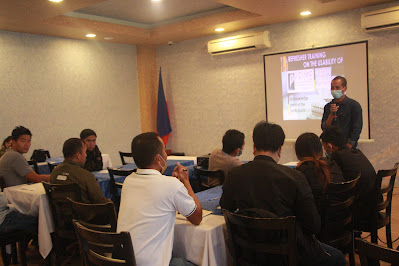Enhanced technology to empower stakeholders
BUTUAN CITY -- It is said that to succeed in any field, continuous learning is required.
With this, the Department of Agriculture (DA) – Caraga conducted a three-day Refresher Training on the Usability of Pest Risk Identification and Management (PRIME) for data collectors.
The training was spearheaded by the Research Division and was conducted on April 27-29, 2022. Hired data collectors of the DA-Caraga as well as agricultural extension workers from the local government units attended the activity in Butuan City.
Research Division Chief Abel F. Wagas said that PRIME is a four-year project funded by the Bureau of Agricultural Research (BAR). It is in collaboration with the International Rice Research Institute (IRRI), PhilRice, and the Bureau of Plant Industry (BPI).
Wagas also emphasized why there is a need to identify and manage pests and diseases saying that pest infestation is one of the factors in low crop yield. He also said that it is important to have refresher training so that those involved in the PRIME project will be continuously updated with knowledge and technologies to effectively perform their PRIME-related functions.
On the other hand, Senior Science Research Specialist Richard Tabudlong said that PRIME aims to improve rice productivity, welfare, and competitiveness of Filipino farmers by mitigating risks of major pest outbreaks. “This can be done by identifying and understanding pest risk factors and providing targeted management recommendations,” he said.
Tabudlong also said that PRIME started in the year 2018. It has two phases, the Research phase and the Sustainability phase. With the Research phase set to end soon, the project will then be turned over to the Regional Crop Protection Center next year for the Sustainability phase. PRIME focuses on five pests and diseases, namely: bacterial blight, blast, tungro/green leafhopper, brown planthopper, and rodents. “It is important that we identify first what pest or disease is affecting our crops for us to manage it well,” he said.
Tabudlong added that with PRIME, farmers are expected to benefit through better-targeted programs on best crop health management practices and advisories that can lead to higher productivity. In Caraga, there are a total of 155 PRIME sites from rice-producing areas.
The implementation of the technology-driven PRIME project is also in support of the OneDA Reform Agenda to transform agriculture through modernization. (Vanessa P. Sanchez, DA13-RAFIS/PIA-Caraga)

